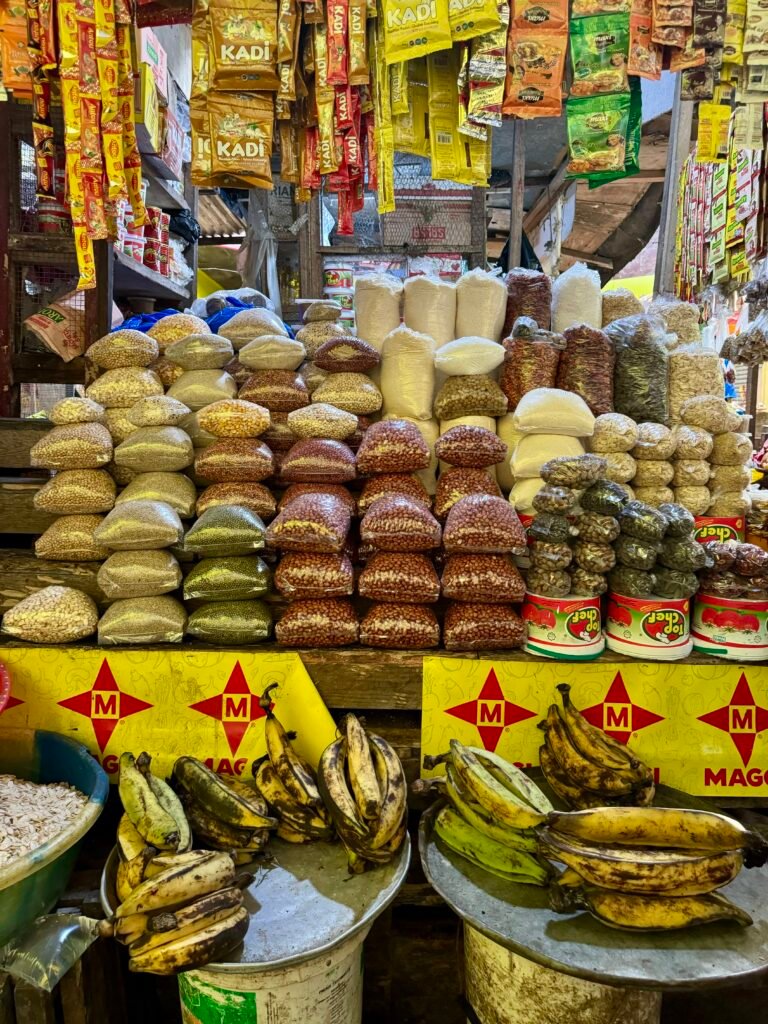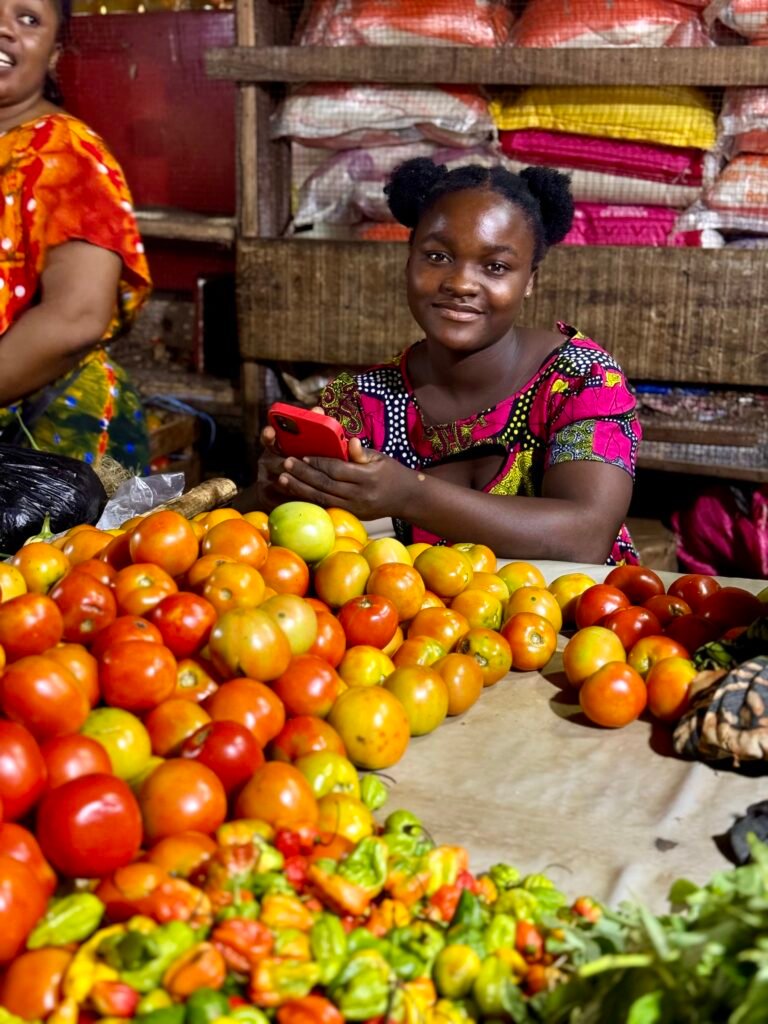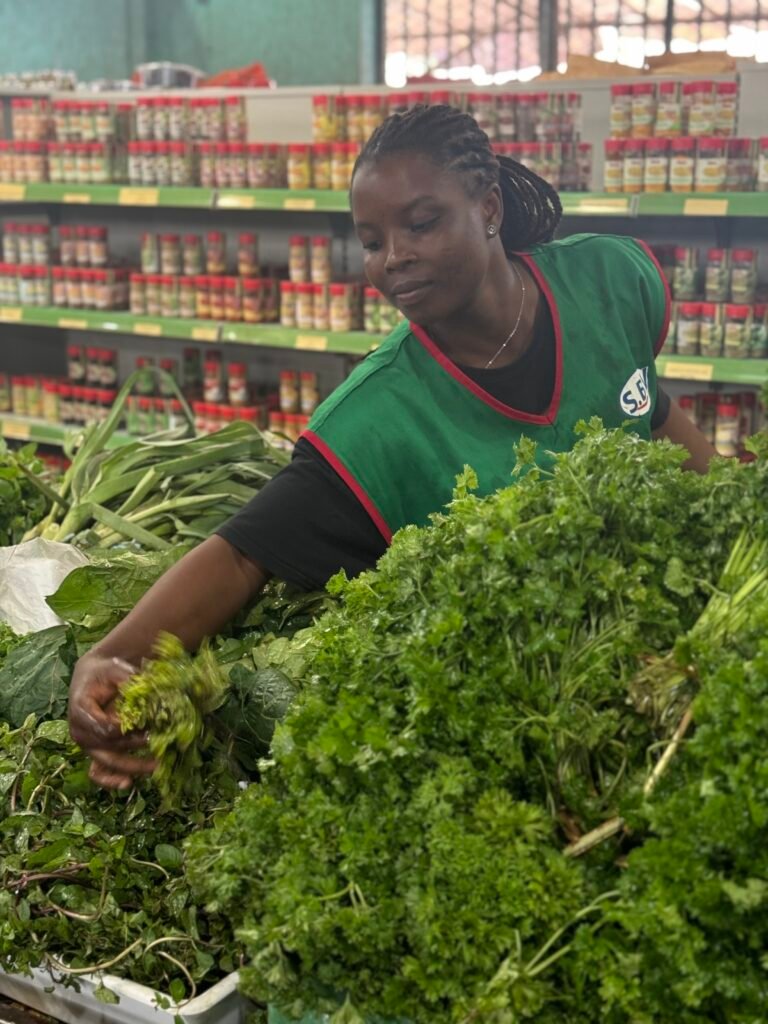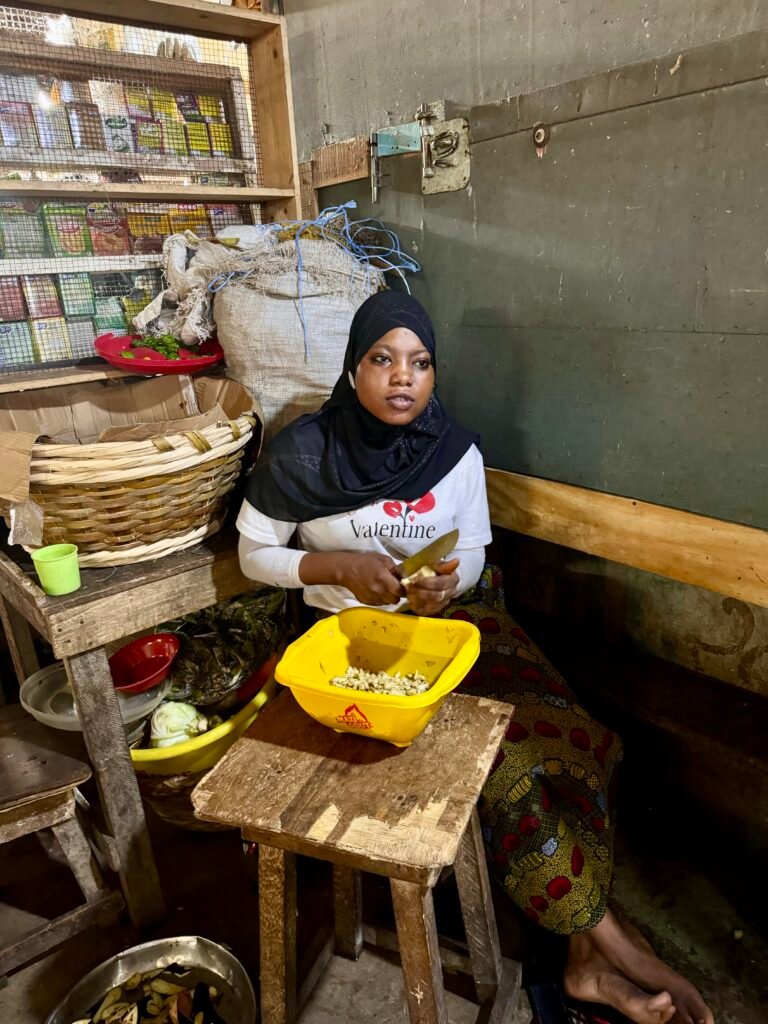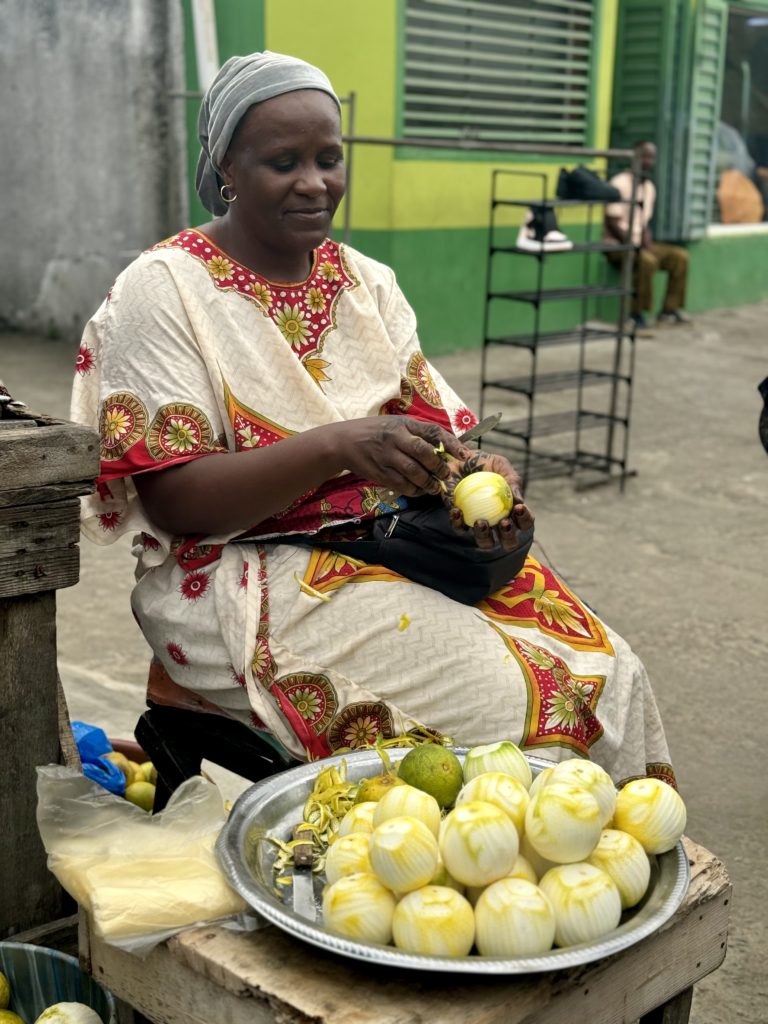
Africa’s informal markets are the vibrant heart of its economies, serving as both the backbone of daily life and the lifeline for millions of families. Within these bustling markets, women take center stage. They are traders, farmers, processors, and entrepreneurs, often balancing their roles as primary caregivers with their essential contributions to the economy. One such woman, pictured here, epitomizes the resilience and innovation of informal market workers in Abidjan, Côte d’Ivoire.
Women: The Pillars of Informal Markets
In many African countries, women dominate the informal sector. These markets, often unregulated and sprawling, provide a livelihood for more than 85% of the continent’s workforce. Women like this vendor are more than just traders; they are micro-entrepreneurs, ensuring food security by connecting rural agricultural production to urban consumers. They peel, prepare, and sell fresh produce, creating value in the most direct and tangible ways.
Despite their central role, these women face numerous challenges. From limited access to capital and market infrastructure to the constant balancing act of work and family obligations, the barriers can be steep. Yet, their ingenuity and adaptability shine through. Whether it’s preparing peeled fruits for busy city dwellers or selling fresh vegetables at affordable prices, they meet the needs of their communities with precision and care.
The Role of Informal Markets in Economic Growth
Informal markets are not just hubs of commerce; they are critical to the economies of African nations. According to the International Labour Organization, informal markets contribute up to 60% of GDP in some African countries. For many families, these markets are the primary source of affordable food, clothing, and household goods.
Beyond the economic contributions, informal markets serve as a social safety net. They provide employment for those excluded from formal sectors, particularly women and youth, offering a means of survival and a pathway to financial independence. These markets also act as incubators for entrepreneurship, where many successful businesses are born.
Challenges and Opportunities
Despite their importance, informal markets often operate in the shadows of the formal economy. Vendors face unpredictable regulatory changes, lack of basic infrastructure such as sanitation and storage, and limited access to credit or business support services. Women, in particular, are disproportionately affected by these challenges due to societal gender norms and unequal access to resources.
However, there is immense potential to support and formalize these markets without losing their inherent flexibility. Programs that provide access to microfinance, technical training, and market infrastructure can significantly enhance productivity. Policies that recognize and integrate the informal sector into broader economic frameworks can unlock growth and stability.
Recognizing the Contributions of Women
It’s time to shine a spotlight on the contributions of women in informal markets. Their work sustains households, drives local economies, and fosters community resilience. Investing in their empowerment isn’t just a matter of equity; it’s an economic imperative. With the right support, these women can expand their businesses, employ others, and continue to drive the economic engines of their communities.
The woman peeling fruits in Abidjan symbolizes the millions of unsung heroines across Africa, quietly shaping the future of the continent. By recognizing their work and addressing the challenges they face, we can build stronger, more inclusive economies where everyone has the opportunity to thrive.

